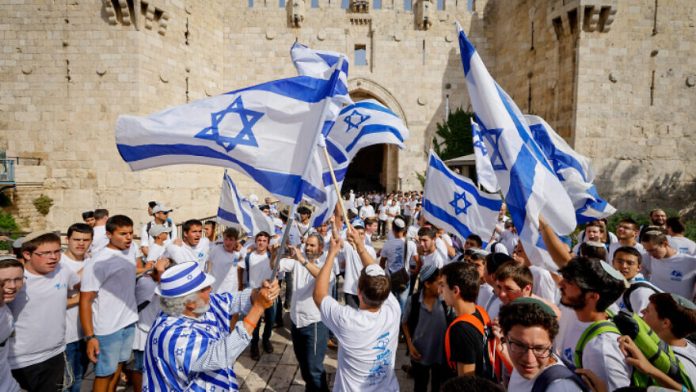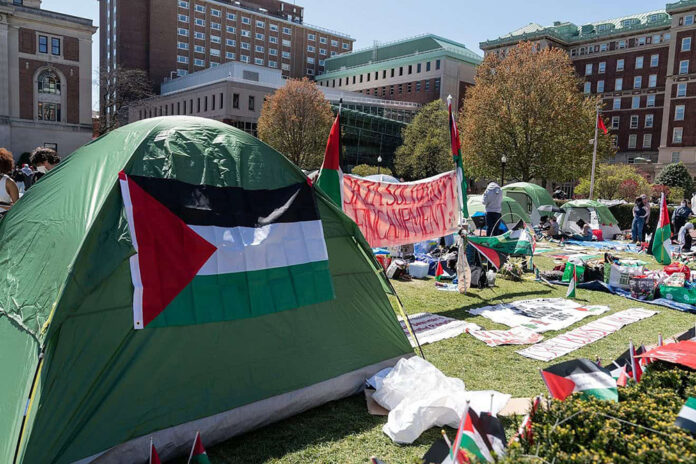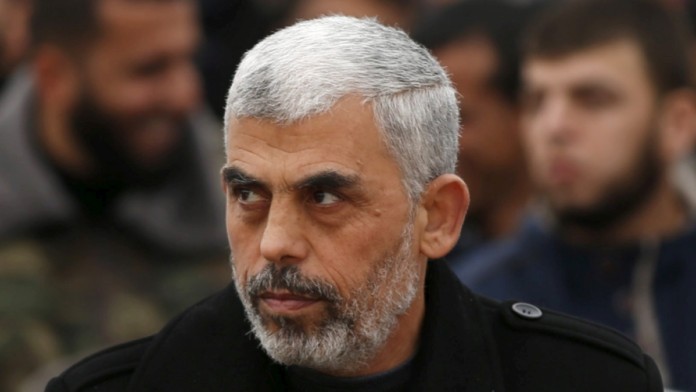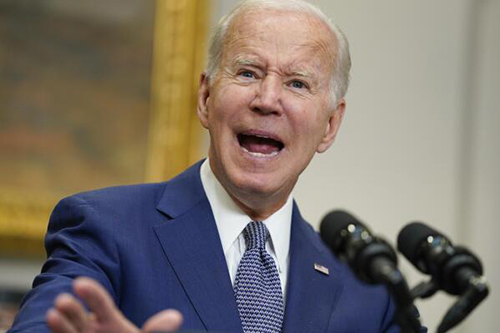(AP) — The alleged sexual encounter at the center of Donald Trump’s criminal hush money trial got a graphic airing in court this past week as porn actor Stormy Daniels shared her account before a rapt jury.
Daniels’ testimony about her time with Trump was by far the most awaited moment of the trial, which now enters its fourth week of witnesses as prosecutors come close to wrapping up their historic case.
But it wasn’t all salaciousness. Manhattan jurors saw documentary evidence meant to directly tie Trump to the hush money payments that were sent to Daniels in what prosecutors say was an effort to buy her silence in the weeks before the 2016 presidential election.
A look at what happened over the last week:
THE (IM)BALANCE OF POWER
The jury heard for seven-and-a-half hours from Daniels, who testified in vivid detail about a 2006 sexual encounter she says she had with Trump, which he has denied.
Though she’s shared details before, one striking aspect of her testimony centered on her perception of an “imbalance of power” in the Lake Tahoe hotel suite where Daniels said she and Trump had sex.
With a bodyguard positioned outside the suite, she described Trump as “bigger and blocking the way.” When the sex was over, she added, “It was really hard to get my shoes on; my hands were shaking so hard.”
Here is what Stormy Daniels testified happened between her and Donald Trump
Daniels made clear under questioning that she was not physically or verbally threatened to have sex and that she was not under the influence of drugs or alcohol at the time.
But defense lawyers were unnerved enough by her characterizations of the encounter that they moved for a mistrial, telling Judge Juan M. Merchan that her testimony was inflammatory and differed in important ways from what she’d previously said. Her statements — she said she felt “lightheaded” and “blacked out” while with Trump — amounted to a “dog whistle” for rape, Trump attorney Todd Blanche said.
“The issue is she has testified today about consent, about danger. That’s not the point of this case,” Blanche told the judge.
Merchan denied the mistrial request but also conceded that the testimony included “some things that were better left unsaid.” The judge also rejected a separate request to permit Trump to respond publicly to Daniels’ testimony in spite of a gag order barring him from incendiary out-of-court comments about witnesses.
‘PHONY STORIES ABOUT SEX’
Given the salacious nature of Daniels’ testimony, and the volume of objections from defense lawyers as she spoke, it was hardly surprising that she faced a combative cross-examination in what was easily the most heated back-and-forth of the trial so far.
The Trump team painted Daniels as an untrustworthy witness as it picked apart her personal life and profession.
There were questions about her past claims that she lived in a haunted house and about her participation in a 2018 strip club tour called “Making America Horny Again.” (For the record, Daniels said, she “hated” that tagline.) There were suggestions, too, that she stands to profit handsomely by continuing to share her account even as the defense branded it pure fiction.
“You have made all of this up, right?” Trump lawyer Susan Necheles asked.
“No,” came the answer.
In several particularly biting exchanges, Necheles invoked Daniels’ porn actor profession to cast doubt on her credibility, telling her at one point, “You have a lot of experience in making phony stories about sex appear to be real, right?”
“Wow,” Daniels replied. “That’s not how I would put it. The sex in the films, it’s very much real. Just like what happened to me in that room.”
The lawyer also implied that Daniels’ experience in the porn industry made it unlikely that she would have been rattled or frightened by the sight of Trump on the bed.
“You’ve acted and had sex in over 200 porn movies, right. And there are naked men and women having sex, including yourself, in those movies?” Necheles asked. “But according to you, seeing a man sitting on a bed in a T-shirt and boxers was so upsetting that you got lightheaded, the blood left your hands and feet, and you felt like you were going to faint.”
A ‘CONTEMPTUOUS’ DEFENDANT
Trump’s out-of-court comments related to the jury and witnesses have earned him monetary fines and repeated rebukes from a judge.
But his demeanor inside the courtroom this past week led to a separate scolding directed at his attorneys.
At one point, Merchan summoned defense lawyers for a quiet discussion at the bench, where he told them he had observed Trump reacting in improper ways during Daniels’ testimony.
“I understand that your client is upset at this point, but he is cursing audibly, and he is shaking his head visually and that’s contemptuous. It has the potential to intimidate the witness and the jury can see that,” Merchan said, according to a transcript of the proceedings.
“I am speaking to you here at the bench because I don’t want to embarrass him,” he added.
Apart from that exchange, Trump drew a separate $1,000 fine for comments about the case made during an interview last month and was warned in the most direct manner yet about the possibility of jail time for further violations of Merchan’s gag order.
THE ‘DJT’ ACCOUNT
Jurors heard more than just salacious testimony. They also learned about the financial transactions at the center of the case and saw payment checks bearing Trump’s signature.
Prosecutors worked to tie Trump directly to the hush money payments to Daniels. They elicited testimony that most of the checks used to reimburse Michael Cohen, Trump’s then-lawyer and fixer, for the payments to Daniels were drawn from Trump’s personal account — which went by his initials, “DJT.”
Deborah Tarasoff, a Trump Organization accounts payable supervisor, said that once Trump became president, checks written from his personal account had to first be delivered, via FedEx, “to the White House for him to sign.”
The checks would then return with Trump’s Sharpie signature. “I’d pull them apart, mail out the check and file the backup,” she said, meaning putting the invoice into the Trump Organization’s filing system.
Still, she and another witness, Jeffrey McConney, a former Trump Organization controller, acknowledged not getting direct instructions from Trump himself about the ins-and-outs of the payments.
Tarasoff, for instance, conceded that she did not interact much with Trump over the years and had no reason to believe that he was hiding anything or that there was anything improper about the checks.
WITH FRIENDS LIKE THESE
Jurors got a glimpse at the high-rolling social life Trump enjoyed before becoming president, full of celebrity wattage and bold-faced names.
A redacted contact list that Trump’s assistant at his company sent to another Trump aide, representing people he spoke to frequently or might want to, included former Fox News host Bill O’Reilly, tennis player Serena Williams, casino mogul Steve Wynn, “The Apprentice” producer Mark Burnett, “Saturday Night Live” mastermind Lorne Michaels and NFL legends Tom Brady and Bill Belichick.
Their contact details were redacted, but the information nonetheless offered a window into the celebrity universe inhabited by Trump.

















